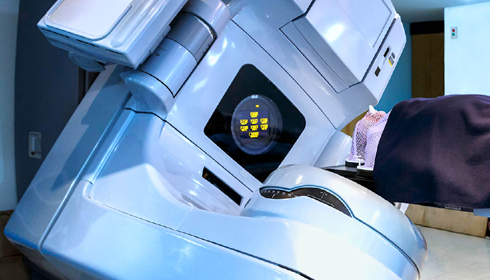
Radiotherapy Benefits Last a Decade, Breast Cancer: Study
A groundbreaking study led by the University of Edinburgh has found that radiotherapy after breast cancer surgery may prevent cancer from recurring in the same location for up to 10 years.
Examining 585 early-stage breast cancer sufferers, the Scottish Breast Conservation Trial found that, while half of the individuals did not get radiotherapy following surgery, half did. The average follow-up time of the study was 18 years, with some instances being under close observation for more than three decades, thereby providing a whole picture of the effects of radiation therapy.
Researchers found that ten years later, the outcomes were telling. Compared to 36 per cent of women who did not get radiotherapy, 16 per cent of those who underwent treatment reported a cancer recurrence in the same location.
Commenting on their findings, lead author from the University of Edinburgh's Usher Institute, Dr Linda Williams, said, "This 30-year study marks the longest follow-up of postoperative radiation in the treatment of early-stage breast cancer. To thoroughly evaluate the risks and benefits of treatments, long-term studies spanning more than ten years of follow-up are very vital.”
The study did find, nonetheless, that the protective action of radiation decreases after ten years. Beyond this time, cancer recurrence risk starts to resemble that of patients who have not undergone radiation therapy.
"Our evidence suggests that radiotherapy protects against cancer returning to the same breast for up to 10 years," Professor Ian Kunkler of the Institute of Genetics and Cancer said.
Researchers pointed out that radiation therapy supports most patients with early breast cancer in continuing to receive radiotherapy following breast-conserving surgery; however, it loses its advantages over time, much as other anti-cancer treatments do.
Although radiation drastically lowers the risk of breast cancer recurrence, it does not seem to raise general survival rates. For those who underwent radiation, the average total survival after 30 years was 19.2 years; for those without radiation, it was 18.7 years. Among those who underwent radiotherapy (37%), there were notably fewer deaths from breast cancer than among those who did not (46%). However, the study also revealed a greater death rate from various cancers in the radiotherapy group (20%) compared to the non-radiotherapy group (11%).
Given breakthroughs in early-stage breast cancer identification and therapy that extend patients' lives, knowledge of these long-term effects becomes ever more crucial. This research emphasises the importance of a fair evaluation of the advantages and drawbacks of radiation over the long term.
Funded by Exact Sciences and the Breast Cancer Institute of the NHS Lothian Charity, the study was published in The Lancet Oncology recently. The study team comprised specialists from the Western General Hospital in Edinburgh, Public Health Scotland, Queen Elizabeth University Hospital in Glasgow, the Usher Institute, the Institute of Genetics and Cancer at the University of Edinburgh, and so on.
Researchers stated that radiation is still a vital part of breast cancer treatment following surgery; nevertheless, its long-term advantages have to be balanced with possible hazards. The results of this large-scale research underline the need for tailored and time-sensitive cancer treatment plans, therefore offering priceless insights for patients as well as healthcare providers.